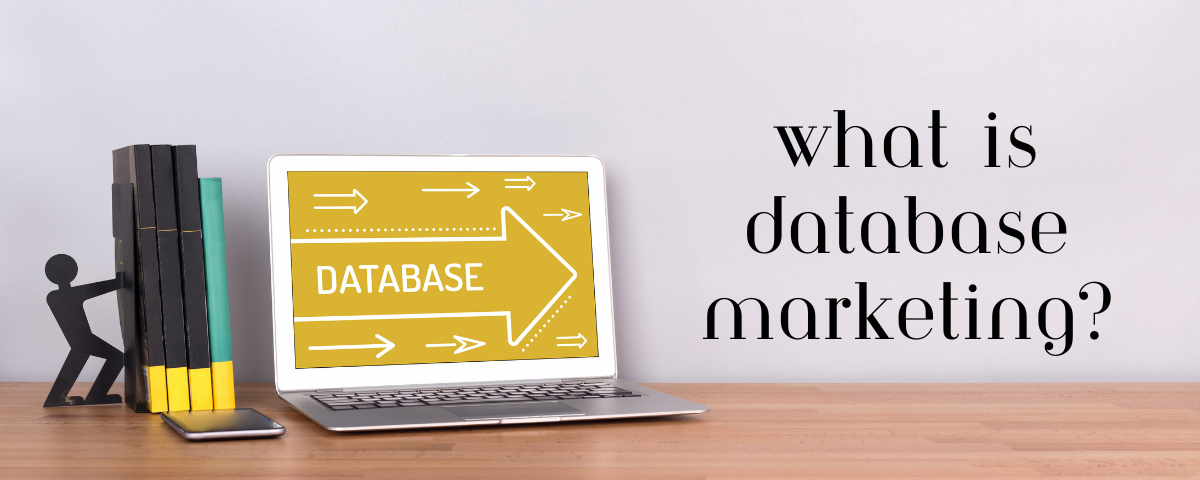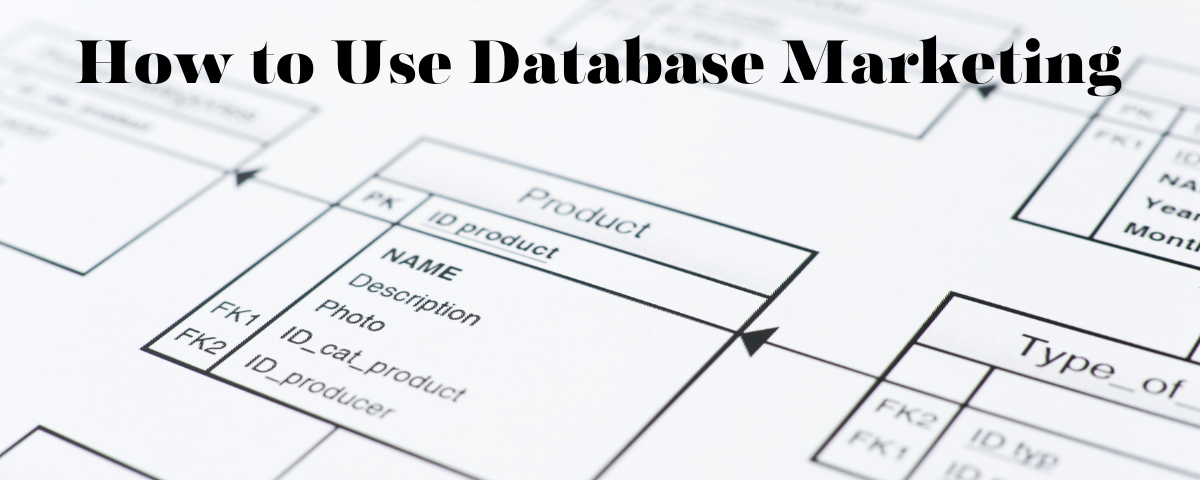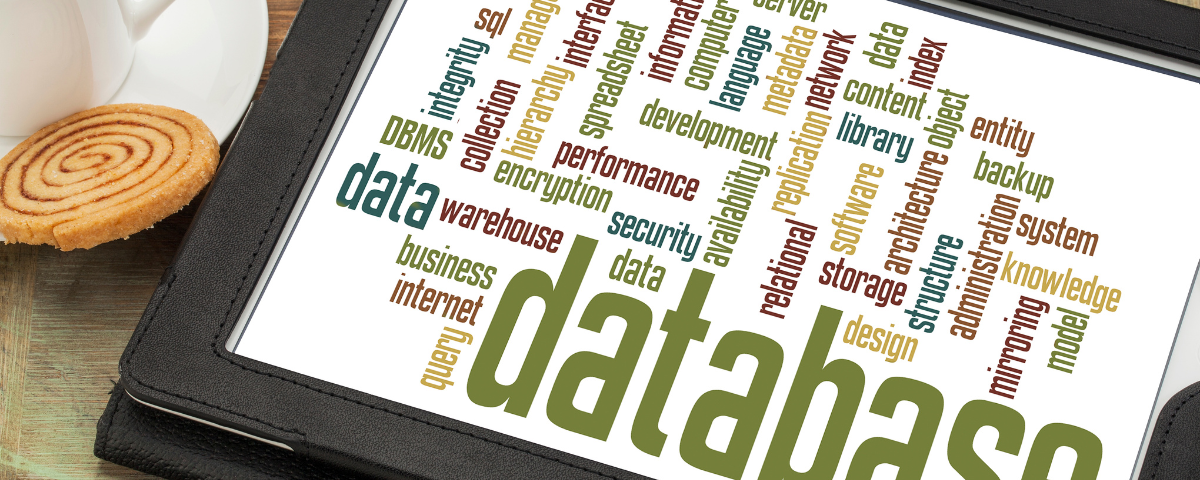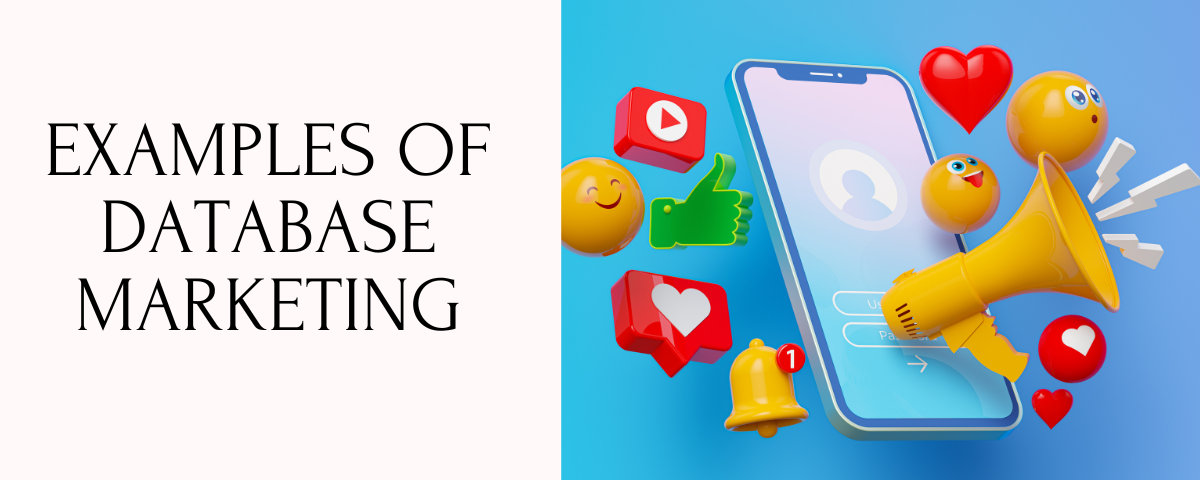Database marketing is a powerful tool that leverages customer data to grab consumer attention and build loyalty. Database marketing offers a powerful solution to achieve this by leveraging data to create tailored and meaningful interactions with your audience.
At its core, database marketing involves collecting, organizing, and analyzing customer information to develop targeted marketing strategies and build lasting relationships. Whether you’re a small business owner or part of a larger organization, this approach can revolutionize the way you communicate with your customers, enhancing their experience and driving better results for your brand.
In this post, we’ll explore the definition of database marketing, its different types, and effective strategies to help you harness its potential to the fullest.
What is Database Marketing?
Database marketing is the practice of using customer data stored in a database to create targeted marketing campaigns. Companies collect and analyze this data to tailor their marketing messages to specific customer segments, which enhances the effectiveness of their campaigns.
Gathering insights into demographics, preferences, and past behaviors empowers businesses to craft targeted campaigns that resonate with their ideal customers. Through data analysis, marketers can identify patterns and trends that illuminate customer needs and desires. Armed with this knowledge, they can curate messaging that speaks directly to these desires, fostering a sense of connection and propelling conversions.
Why is Database Marketing Important?
Get 50% Discount to Master ALL Aspects of Digital Marketing That Can Earn You $2,500 - $5,000 a month (Even if you are a complete beginner!)
Our students that intentionally implement what they learn from our digital marketing course make back the entire course fee within a single month or more after completing our course because our course gives them many income generating options with unlimited earning potential with no age or location barrier. The best part is no technical skills are required.
An opportunity to change your lifestyle and make money working from anywhere in the world. The results our students get from our digital marketing course prove this could be applied to any market or country and that it is designed for any skill level and work background.
*By signing up, you agree to our privacy policy and terms of service.
The main reason businesses need database marketing is because it helps them collect, analyze and organize customer data for better communication with current customers. Database marketing has enabled businesses to shift from mass production of information to personalized marketing towards individual consumers.
This custom-made campaign allows the creation of specific content that generates high-quality leads and increases the marketing campaigns’ conversion rate. It also provides options for varying experiences for each customer, recording all purchase details and making particularly relevant offers based on customer data.
Therefore, companies need to make use of a database marketing tool as this will allow them to optimize their marketing activities while boosting client engagement by using corporate data when selling products or services.
The Benefits of Database Marketing
Database marketing is comprehending customers and using that knowledge to fulfil genuine business goals. A maintained customer database unlocks huge benefits:
Targeted Marketing
Targeted marketing involves using customer data to create personalized campaigns that deliver relevant messages to specific customer segments. This approach increases engagement and conversions, leading to improved customer retention and cost efficiency.
Increased ROI
Targeting the right audience eliminates wasted marketing spend. Database marketing allows you to focus your marketing efforts on those likeliest to convert. This leading to higher marketing campaign returns.
Data-Driven Decision Making
A customer database is an insights goldmine. When you analyze purchase patterns, campaign performance, and identifying trends, businesses can make informed decisions about future marketing strategies, and overall business direction. This data-driven approach enables organizations to optimize their efforts and maximize results, ultimately driving growth and success.
Enhanced Customer Relationships
Enhanced customer relationships are a significant benefit of database marketing for businesses to get closer to their audience. When you leverage customer data, your businesses can deliver personalized experiences that foster loyalty and satisfaction.
Improved Customer Retention
Loyal customers are a business’ backbone. Database marketing nurtures these relationships through targeted promotions, loyalty rewards, and exclusive offers. This will Keep your brand top-of-mind and encourage repeat business.
How to use Database Marketing
To use database marketing effectively, follow these tips and strategies:
1. Segment your audience
Segmenting your audience is the foundation of effective database marketing. It allows you to divide your customer base into different segments based on demographic characteristics, behavior patterns, and transaction history. This allows you to create personalized marketing campaigns that are tailored to each segment’s unique needs and preferences.
For example, you can create different segments for high-value customers, new customers, and lapsed customers. By understanding the unique characteristics of each segment, you can tailor your marketing messages, offers, and content to resonate with each group.
2. Collect relevant data
Collecting relevant data is essential in database marketing. By gathering customer information such as names, purchase history, and preferences, you can build a comprehensive understanding of your audience. This data can be sourced from various channels like website interactions, social media engagement, and past transactions.
Having this information allows you to create detailed customer profiles, enabling personalized marketing campaigns tailored to individual needs. With a well-rounded dataset, businesses can effectively target their audience, improve customer engagement, and drive better results through customized marketing strategies that resonate with their customers.
3. Analyze the data
Analyzing data of the customer information collected can help you uncover valuable insights about your audience’s behavior, preferences, and needs. This analysis can reveal patterns in purchasing habits, demographics, and engagement, enabling you to create targeted marketing campaigns that resonate with your customers.
By leveraging data analytics tools, businesses can identify trends, make informed decisions about future marketing strategies, and optimize their efforts to maximize ROI. This data-driven approach ensures that marketing efforts are tailored to the unique needs and preferences of each customer segment, leading to improved engagement, loyalty, and satisfaction.
4. Back up your data
Creating and updating copies of your customer data ensures that you have a reliable and secure backup in case of data loss or corruption. This backup can be stored on external servers or cloud-based platforms, providing an additional layer of protection against data breaches and cyber attacks.
When you have a secure backup, businesses can maintain the integrity of their customer data, ensuring that marketing efforts are based on accurate and up-to-date information. This approach not only protects the business from potential data loss but also builds trust and credibility with customers, who expect their personal information to be handled with care and confidentiality.
5. Create targeted marketing campaigns
Creating targeted marketing campaigns allows businesses to tailor their marketing messages to specific customer segments. This personalized approach allows for the delivery of relevant content, offers, and promotions that resonate with each group’s unique preferences and needs.
When you segment the audience and craft targeted campaigns, businesses can increase engagement, drive conversions, and build stronger relationships with their customers. This strategy not only improves the effectiveness of marketing efforts but also enhances customer satisfaction and loyalty by delivering messages that are more likely to capture their interest and drive action.
6. Monitor and adjust
Monitoring and adjusting your marketing campaign performance gives you the chance to evaluate customer feedback, and businesses can identify areas for improvement and optimize their efforts. This approach enables businesses to adjust their strategies in real time, ensuring that marketing efforts remain relevant and effective.
This data-driven approach not only improves the effectiveness of marketing efforts but also ensures that businesses are responsive to customer needs and preferences, leading to improved engagement, loyalty, and satisfaction.
If you still don’t know how to use data to make an informed decision during your marketing campaigns, why not attend our next digital marketing training to start to understand the fundamentals of online marketing.
Database Marketing Challenges
Navigating through the maze of database marketing isn’t a cakewalk notwithstanding its numerous benefits. Here are some key challenges to consider:
Data Quality
The basis for successful database marketing is your data quality. Incorrect or out-of-date details will result in campaigns that fail to reach their targets and leave customers disappointed. Regular data cleaning and verification processes are necessary to ensure that your database remains a reliable source of truth.
Data Silos
Customer information is often found in different systems within an organization, making it hard to have a 360-degree view of who you are targeting. Integration and data unification efforts are crucial in creating a single repository for holistic customer profiles.
Privacy Regulations
Navigating the ever-changing terrain around data protection regulations such as GDPR and CCPA necessitates a commitment to compliance. Trust building requires transparency about how data is gathered and explicit consent from consumers must be obtained to avoid legal consequences.
Segmentation Skills
Extracting the value from your information requires some analytical skills. Being able to segment audiences into relevant criteria effectively plays an important role in making targeted campaigns resonate well with them.
Resource Constraints
If at all you want a highly elaborate service offering on databases, then implementing and maintaining a robust database marketing marketing strategy can be resource-intensive. Investing in the right marketing automation tools and personnel with the necessary data analysis skills is essential to maximize the effectiveness of your database.
Types of Database Marketing
The versatility of database marketing is its key advantage. It allows you to customize your strategies based on your goals and target audience.
There are two main types of database marketing:
1. Consumer Database Marketing
This method focuses on individual consumers and is ideal for B2C companies. By gathering data on demographics, shopping habits, and online activity, you can create tailored marketing campaigns. Some examples include:
- Email Marketing: Send personalized emails with special offers and product suggestions to different customer segments.
- Loyalty Programs: Encourage customer loyalty by offering exclusive discounts and rewards to repeat buyers.
- Triggered Messaging: Send automated emails or SMS messages based on specific customer actions, such as abandoned carts or birthdays.
2. Business Database Marketing
In this strategy, the main focus is on creating connections with other businesses (B2B). Business databases usually have in-depth data about companies, their key decision-makers, and buying patterns.
Here are a few common tactics used in B2B database marketing:
- Account-Based Marketing (ABM): This involves targeting high-value accounts with customized campaigns that cater to their unique requirements and obstacles.
- Industry Events: Use your database to pinpoint potential leads who will be present at relevant industry events and establish relationships before the events take place.
- Targeted Content Marketing: Develop content that speaks to the pain points and interests of specific industries within your target market.
Examples of Database Marketing
Understanding the theory of database marketing is essential, but witnessing its power in action truly cements its value. Here are some compelling real-life examples that showcase the effectiveness of this approach:
Amazon’s Targeted Offers
Amazon’s product recommendations are legendary in the world of e-commerce. They leverage customer purchase history, browsing behavior, and even items left lingering in virtual shopping carts to suggest relevant products. These targeted offers not only increase the likelihood of conversion but also create a smoother and more satisfying shopping experience.
Amazon also employs omnichannel marketing strategies to craft a seamless customer experience spanning all touchpoints, ranging from online interactions to offline engagements.
Spotify’s Birthday Boost
Spotify uses customer data to create personalized experiences, like sending birthday emails with customized playlists. This personal touch helps users feel connected and engaged with the platform.
Netflix’s Recommendation Engine
Netflix is excellent at using database marketing to tailor recommendations based on user data. They analyze viewing behavior and ratings to suggest content that users will likely appreciate, keeping them engaged and subscribed for extended periods.
Conclusion
Database marketing is a potent technique that utilizes customer data to steer focused and tailor-made marketing campaigns. By gathering, storing, and examining data on customers and potential clients, companies can gain a deeper insight into their actions, likes, and requirements. This data is then put to use in crafting customized marketing messages and deals, leading to an enhancement in customer loyalty, sales, and revenue.
To become a good data analyst, you need to acquire and hone relevant digital marketing skills by enrolling in some or all of the courses to get started.
FAQs
How do you set up a marketing database?
Setting up a marketing database involves 3 key steps:
- Define your goals: What do you want to achieve (e.g., brand awareness, lead generation)? This will determine the data you collect.
- Collect data responsibly: Build opt-in forms, gather data across channels (website, social media), and prioritize data hygiene (accuracy & duplicates).
- Choose a platform: Decide on a CRM, marketing automation tool, or a simple spreadsheet (for smaller databases) to store your data.
What is the difference between CRM and Database Marketing?
CRM (Customer Relationship Management) and database marketing are intertwined, but with key differences:
- Focus: CRM focuses on managing all customer interactions across departments (sales, marketing, service) to build relationships. Database marketing uses customer data for targeted marketing campaigns.
- Scope: CRM encompasses the entire customer journey. Database marketing is a specific tactic within CRM focused on communication.
- Storing: CRM (Customer Relationship Management) systems store customer data while marketing leverages that data to create targeted campaigns. Think of CRM as the treasure chest and marketing as the map maker – using the map (customer data) to find the treasure (targeted audience).
What is the relationship between CRM and marketing data?
CRM and marketing data are two sides of the same coin. CRM (Customer Relationship Management) systems store customer data while marketing leverages that data to create targeted campaigns. Think of CRM as the treasure chest and marketing as the map maker – using the map (customer data) to find the treasure (targeted audience).
More Resources
The Ultimate Guide to B2B Marketing in 2024
What is Omnichannel Marketing? Definition + Strategy






